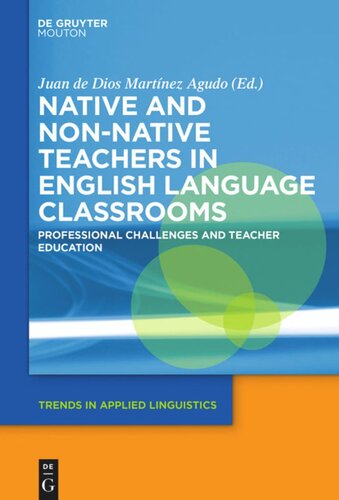

Most ebook files are in PDF format, so you can easily read them using various software such as Foxit Reader or directly on the Google Chrome browser.
Some ebook files are released by publishers in other formats such as .awz, .mobi, .epub, .fb2, etc. You may need to install specific software to read these formats on mobile/PC, such as Calibre.
Please read the tutorial at this link: https://ebookbell.com/faq
We offer FREE conversion to the popular formats you request; however, this may take some time. Therefore, right after payment, please email us, and we will try to provide the service as quickly as possible.
For some exceptional file formats or broken links (if any), please refrain from opening any disputes. Instead, email us first, and we will try to assist within a maximum of 6 hours.
EbookBell Team

4.7
36 reviewsDespite being highly debated in applied linguistics and L2 teaching literature, the controversial issue of (non)nativeness still remains unresolved. Contemporary critical research has questioned the theoretical foundations of the nativeness paradigm, which still exerts a strong influence in the language teaching profession.
Written by well-known researchers and teacher educators from all over the world, both NSs and NNSs, the selected contributions of this volume cover a great variety of aspects related to the professional role and status of both NS and NNS teachers in terms of both perceived differences and professional concerns and challenges. The strongest aspects of this volume are the global perspectives and the implications for future research and teacher education. It is precisely this international perspective which makes this volume illustrative of different realities with a similar objective in mind: the improvement of second language teaching and teacher education. In today's world, being a NS or NNS should not really matter but rather teachers' professional competences.
This publication thus provides a forum of reflection and discussion for all L2 educators who need to be aware of how much they might offer to their future students.